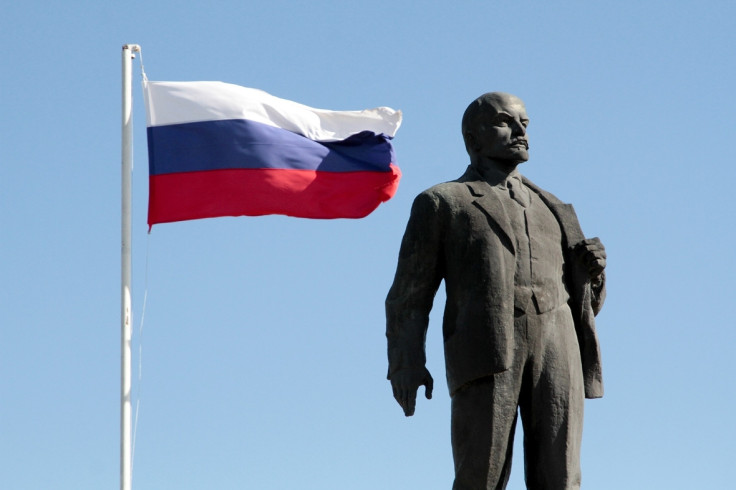Why the millennials are toying with a return to socialism
Liberals would do well to examine the growing problems facing young adults in Western democracies today.

Reminiscences on the centenary of the Russian Revolution this year have broadly fallen into two categories. They have been either glowing hagiographies or violent denunciations.
The latter have invariably been more prominent through the sheer fact that the social system the revolution produced – the Soviet Union – is as extinct as the Dodo. History is written by the victors, as the cliché goes; newspaper columns usually are too.
As opposed to if the centenary had fallen, say, 10 years ago, when one might have expected a triumphalist note from these anti-Bolshevik critics, much of this year's output has been characterised by a deep sense of foreboding.
"So discredited was Bolshevism after the Soviet Union's demise in 1991 that, for a quarter of a century, it seemed as if Bolshevik thinking was gone for good," writes Anne Applebaum in the Washington Post. "But suddenly, now, in the year of the revolution's centenary, it's back. "
It isn't really back of course – few political movements of any significance in the West are advocating a violent seizure of power. Nor is there a great appetite on the left or elsewhere else for a campaign of terror. At least not among those to whom writers like Applebaum point as examples of Bolshevism's resurrection.
I have read half a dozen opinion columns like this and they all more or less end up saying the same thing: young Westerners are looking left because they have failed to learn the lessons of the twentieth century.
They have been gravitating toward parties like Podemos in Spain, Syriza in Greece, as well as politicians like Bernie Sanders in the United States and Jeremy Corbyn in the UK, in a state of idiotic convulsion.
As the FT's Janan Ganesh tweeted (then deleted) last year: "All this stuff about Corbyn and this so-called movement. The truth is they're just as thick as pig s**t."
And more and more people it seems are joining this apparent cognitive underclass. A recent survey carried out by the Washington-based Victims of Communism Memorial Foundation found that a slim majority of American millennials would rather live in a socialist nation than a capitalist one.
44% of American millennials surveyed by YouGov would rather live in a socialist country, compared to 42% who would prefer to reside in a capitalist country.
This mirrored another survey carried out in Britain last year by YouGov, when it found that a small majority of voters of all ages had a more unfavourable view of capitalism than socialism.
The almost 30-year gap between ourselves and the fall of the Berlin Wall probably accounts in part for this gradual shift in attitudes. Not because, as some claim, young people are naïve to the horrors of Soviet-era Stalinism. It seems more likely that it has simply become harder for conservatives to point at democratic socialists in the West and claim that they seek to 'turn Britain/America into East Germany'.
But the reason Western electorates might be increasingly open to new (or new-old) ideas seems quite prosaic to anyone who bothers to investigate properly. It's very well to accuse your opponents of succumbing to ideological fervour; but what are the material circumstances that are pushing voters to reject the current system?
On the centenary of the Bolshevik Revolution it's worth reflecting perhaps above all on why the revolution happened in the first place. It did involve the seizure of power by a tight-knit group of revolutionaries. But this was made possible by economic and military collapse.
As Victor Sebestyen writes in his new biography of Vladimir Lenin, prices of some basic foodstuffs had "quadrupled" between February and September 1917. "More than 500 factories in Petrograd and Moscow had closed down and over 100,000 workers had lost their jobs in the capital since February".
Beyond that, more than a million Russians had by this point been slaughtered in the First World War, and only Lenin can be said to have consistently opposed the war.
The point here is not to directly compare the fortunes of British and American youth in 2017 with that of their Russian counterparts a century ago.
That would be absurd. But the centenary of the Russian Revolution does offer a useful reminder that, when people feel they have little stake in the existing system, they are liable to throw their lot in with an alternative – sometimes any alternative.
Instead of wringing their hands and crying 'totalitarianism', liberals would do well to examine the growing problems facing the young in Western democracies today. The imposition of neo-liberal ideas - despite their obvious failure in so many spheres of life - is as much a sign of ideological rigidity as anything found on the resurgent left.
© Copyright IBTimes 2024. All rights reserved.






